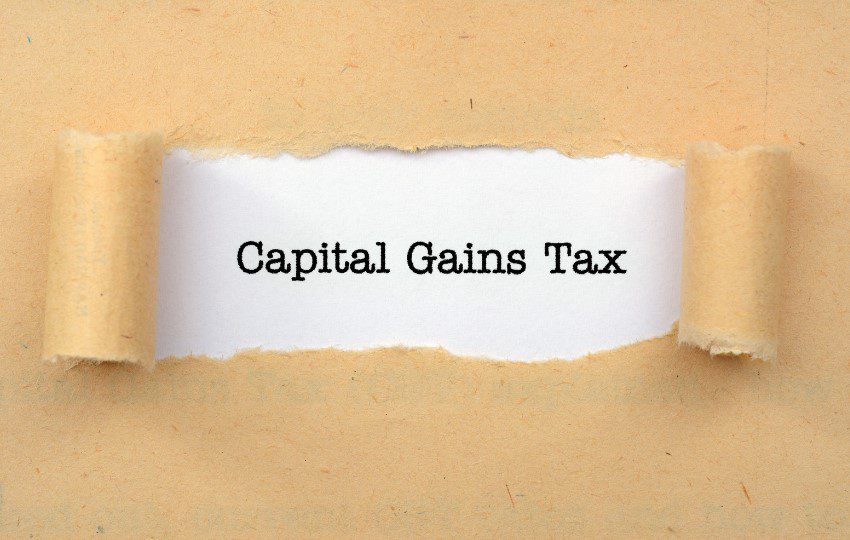
Understanding the new Capital Gains Changes in Canada: Effective June 25th, 2024
The 2024 federal budget introduced significant changes to Canada’s capital gains tax regulations, which took effect on June 25, 2024. These changes impact individuals, trusts, and corporations, and it’s crucial to understand how they may affect your financial planning and investments. This blog will simplify these changes and outline their potential implications for your real estate and investment portfolios
What Are Capital Gains?
Capital gains occur when you sell an asset, such as real estate, stocks, or bonds, for more than you paid for them. The difference between the selling price and the purchase price is considered a capital gain and is subject to tax. The portion of the capital gain that is included in your income is known as the inclusion rate.
Previous Capital Gains Tax Rules
Under the old rules, 50% of your capital gains were taxable. For example, if you sold an asset and made a $10,000 profit, only $5,000 of that profit would be added to your taxable income.
New Capital Gains Tax Changes
- Increase in Capital Gains Inclusion Rate
Change: Starting June 25, 2024, the capital gains inclusion rate increased from 50% to 66.67% for trusts and corporations. For individuals, the inclusion rate will also rise to 66.67%, but this will only apply to annual capital gains above $250,000. For gains below this threshold, the inclusion rate remains at 50%.
Impact:
- Higher Taxable Amount: More of your capital gains will now be subject to income tax, increasing the overall tax burden on significant investments, especially real estate and corporate assets.
- Real Estate Sales: If you sell a Canadian residential property or rights to a pre-construction residential property held for less than one year, the gain may be considered business income and be 100% taxable unless an exception applies.
- Increase to Lifetime Capital Gains Exemption (LCGE) for Entrepreneurs
Change: From June 25, 2024, the Lifetime Capital Gains Exemption (LCGE) will increase to $1.25 million from the previous $1.016 million for eligible capital gains.
Impact:
- Benefit to Entrepreneurs: This change is beneficial if you are selling shares of a qualified small business corporation or qualified farm and fishing property, allowing for more capital gains to be exempt from tax.
- Alternative Minimum Tax (AMT) Adjustments
Change: The AMT rules are being adjusted to better align with regular income tax calculations. The AMT is a parallel tax system that allows fewer tax credits, deductions, and exemptions than the standard personal income tax rules. Taxpayers will pay either the regular tax or the AMT, whichever is higher.
Impact:
- Strategic Tax Planning: It’s essential to consider AMT implications when planning for capital gains realization and charitable contributions to optimize your tax strategy.
- Canadian Entrepreneurs’ Incentive
Introduction: Starting in 2025, a new initiative will reduce the capital gains tax rate to one-third on up to $2 million of qualifying shares. This incentive provides a capital gains inclusion rate of one-half the prevailing inclusion rate on up to $2 million in capital gains per individual over their lifetime.
Impact:
- Encouraging Entrepreneurship: This incentive promotes entrepreneurship by lowering the tax burden on the sale of qualifying shares, though it does not apply to professional corporations.
Implications for Real Estate Investors
Real estate investors in Windsor, ON or beyond, in particular, need to be aware of these changes as they could significantly impact the profitability of property sales. The increased inclusion rate means that a larger portion of your capital gains from selling real estate will be subject to tax.
Planning Ahead
To mitigate the impact of these changes, consider the following strategies:
- Timing of Sales:
- If possible, plan the timing of your asset sales to align with years when you may be in a lower tax bracket.
- Use of Tax-Advantaged Accounts:
- Consider the possible advantage of tax-free savings accounts (TFSAs) and registered retirement savings plans (RRSPs) to shelter some of your investments from capital gains tax.
- Professional Advice:
- Consult with a tax professional or financial advisor to develop a tax strategy that minimizes your tax liability and maximizes your after-tax returns.
Conclusion
The new capital gains tax changes effective June 25, 2024, represent a significant shift in the tax landscape. By understanding these changes and planning accordingly, you can make informed decisions to manage your investments and minimize your tax liabilities. This blog post is for information purposes only and is not intended to constitute legal or financial advice. If you own, or are contemplating a real estate purchase in Windsor-Essex and want to learn more about how you could be affected by the capital gains tax it is important to speak with your accountant or lawyer first. You should also reach out to The Dan Gemus Real Estate Team to speak with a professional real estate agent so you can also learn how to time the Windsor-Essex market, maximize your the profits from your sale, and for expert advice and guidance on your next purchase.
Further resources: VIDEO

